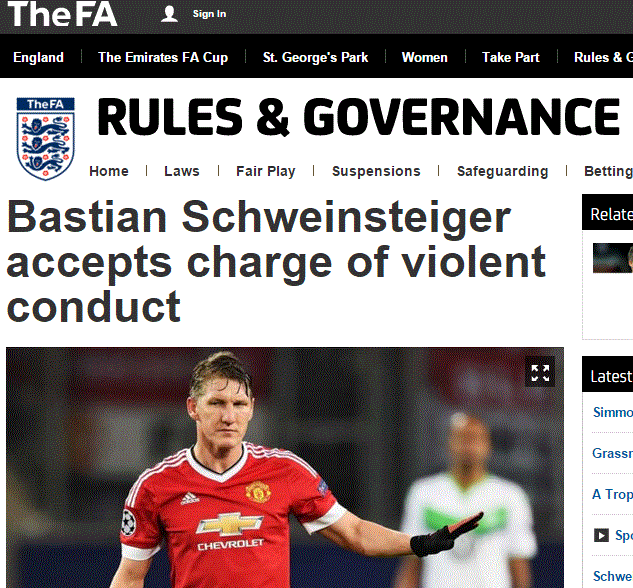The Maturity Institute (MI) was formed for a number of very sound reasons. One is recognition, shared with many other impartial observers, that there is something rotten in the state of capitalism. That does not mean capitalism is finished: it plays a crucial part within the entire, global, socio-economic and environmental system; so it is imperative that we make it work as well as we possibly can.
The best systems repair and heal themselves; something the human body does remarkably well, most of the time. When it stops working though somebody has to step in. The Paris climate talks over the last two weeks, involving 196 countries, points to a future where everyone in the world finally accepts that we have to work together as a whole system; there are no alternatives.
MI subscribes to this whole system approach. That is why our over-arching goal is a world where every individual on the planet is allowed, enabled and actively encouraged to maximise his or her own contribution towards that common purpose. It is this philosophy that underpins a holistic concept of ‘human governance’; a term not yet in common parlance but one that is rapidly gaining currency within the investment community. When I used it at our last Council meeting I was challenged, by one of my Council colleagues, to define it (there’s no risk of ‘group think’ at MI). So, here goes.
A conventional, rational approach would be to break the term down into its component parts but, as we all know what ‘human’ means, it is the word ‘governance’ that demands better definition. Governance can only be defined in relation to a specific purpose. The specific purpose of MI is to maximise societal value so governance is about maximising value and wealth. This is the over-arching criterion by which we assess organizations. In other words, we seek evidence that human beings are being governed to give the greatest value they can to the rest of society. There is a world of difference between profit and value; between corporate management and corporate governance. One focuses on the task in hand, the other is intrinsically, socially responsible.
Immature, narrowly-focused attitudes in the boardroom and executive suite are often justified by way of reference to Milton Friedman’s view that the pursuit of profit is inherently, socially responsible. Yet the Paris climate talks clearly signal this is no longer the case (it never was). When the profit motive can no longer be regarded as a legitimate, universal and exclusive indicator of corporate success, what organizational raison d’être can boards and executives now follow? Surely it is self-evident that the only legitimate purpose for any organization is to deliver value in its broadest sense? It follows that every single person on the planet has to be following the same agenda. Idealistic? Yes. Impossible? No, society can and does change continuously.
So let us start to change by agreeing at least one, definitive statement –
“Human governance starts with an open acknowledgement that the organisation is committed to the never-ending pursuit of societal value through realising the full potential value of its entire human capital.”
This might be a very logical view but, where human beings are concerned, nothing is ever that straight forward. This simple statement actually represents a significant paradigm shift in our present, global system. In particular, it addresses the universal failing of conventional management to factor humanity into its financial equations. This is the why of human governance.
The What?
OK, so what does it mean in practice? The number one question we ask when rating a company’s maturity level is –
“What is the single, over-arching purpose of your company?”
Having tried this out on over 70 large corporations (that currently make up the Global OMI index) it is worrying to find so little public declaration of any corporate purpose whatsoever. Where there is any purpose specified it tends to be, primarily, shareholder value. Ironically, the underpinning philosophy of capitalism is the very cause of its present malaise. Shareholder primacy is a partial and incoherent policy; not the sort of well-conceived philosophy that can provide a solid foundation for a world system. It is also illegitimate unless it adopts a philosophy of maximising the value of human capital. So question number 3 on our corporate questionnaire (question 2 is about value) asks –
“Does anyone on the board hold specific responsibility for human governance?”
Today, this can only be a rhetorical question because the holistic nature of the term human governance has not yet been embraced and no one (outside of MI) has identified a specific role for it in organizational management. Only when these first tentative steps have been taken can we can start talking, at board level, about what this role might entail. At least MI is starting to build a picture of what holistic human governance might look like. Moreover, we are empathetic towards those in the boardroom, who are trying to keep shareholders at bay, and their C-suite who have the onerous responsibility of managing the organization responsibly.
 Interestingly, if you do a Google search on ‘governance’ you will be offered a long list (140 million hits) but no simple answer. On this particular day (it would be different tomorrow – such are the whims of big data) you would probably dismiss Wikipedia’s attempt as being wordy and unhelpful; and have to stifle a laugh when stumbling upon the Football Association’s “Rules & Governance” [i] page; referring to the “violent conduct” of Manchester United’s Sebastian Schweinsteiger. Rules and compliance are necessary but rather pointless in the absence of effective governance; and high salaries (his is reputedly £14.3 million) do not appear to guarantee good behaviour. In the wake of the corruption scandal at FIFA, a body to which we had entrusted the global footballing system, humanity sees yet more evidence of the paradox of money somehow diminishing many of our simple pleasures in life.
Interestingly, if you do a Google search on ‘governance’ you will be offered a long list (140 million hits) but no simple answer. On this particular day (it would be different tomorrow – such are the whims of big data) you would probably dismiss Wikipedia’s attempt as being wordy and unhelpful; and have to stifle a laugh when stumbling upon the Football Association’s “Rules & Governance” [i] page; referring to the “violent conduct” of Manchester United’s Sebastian Schweinsteiger. Rules and compliance are necessary but rather pointless in the absence of effective governance; and high salaries (his is reputedly £14.3 million) do not appear to guarantee good behaviour. In the wake of the corruption scandal at FIFA, a body to which we had entrusted the global footballing system, humanity sees yet more evidence of the paradox of money somehow diminishing many of our simple pleasures in life.
We cannot sit back and expect good governance to happen: a serious and professional attempt has to be made to identify the key ingredients. So, returning to our definition, we should acknowledge that it is already founded on the declared purpose of maximising societal value. There is no other purpose that can trump this; even shareholders and investors know that short-termism often comes at the cost of long term value. Everything a corporation does, or can do, stems from its purpose and its leadership has to be held to account accordingly. We can rightly call on all chairs of boards, CEOs and their Excos to commit openly, publicly and loudly that their over-arching goal is to provide society with the best possible quality product or service at the lowest possible cost (with no undue environmental impact) and we should offer public recognition and warm praise to those that do.
This is the new blueprint for corporate governance; with human governance being an indivisible and irreducible element. Appointing someone to be specifically accountable for human governance then becomes mandatory and this person will have to report how well the organization’s human capital is being managed: key extracts of which should be integrated into the company’s annual report. Any executive or manager reading this would do well to look at MI’s ARC framework to find out more about what they now need to start doing.
The How?
How such governance can have an impact across the organization is actually very simple. Anyone who has learned from our original benchmark and exemplar, Toyota, will know that every single employee has to be engaged with a clear purpose and taught how to solve problems at an operational level; using some well tried-and-tested tools (the bell curve, Pareto analysis, cause and effect, PDCA). Unfortunately, the vast majority of corporations find putting the ‘why’, ‘what’ and ‘how’ together extremely difficult because they fail to create an organizational climate and culture where mistakes can be admitted and fear no longer rules.
The majority of Toyota ‘copycats’ miss the human governance aspects of their total system solution. For example, ‘Six sigma’ initiatives can only be as fruitful as the fertility of the environment allows. Engagement surveys become meaningless unless all employees are engaged in the common pursuit of societal purpose. Trying to engage a whole workforce (and value chain) with a policy of ‘shareholder first’ makes little management sense. Whole system thinking is light years away from the ‘group think’ that supposedly bedevilled the board at RBS. It is difficult for conventional board members and executives to get their heads around but, until they do, society will never hold them in the high regard they might crave; irrespective of any PR or CSR efforts they employ to make their version of capitalism more palatable.
The Who?
That just leaves the who. Where are these human governance professionals going to come from and what attributes and skills do they need? Which boards are going to welcome them as part of a long-term, sustainable business strategy that has to keep adapting to an ever-changing context of social mores? Even if we discover boards with the will, where can they find fully-trained professionals when our business schools have been dancing to the same tune of shareholder value for so long? That is the first challenge to overcome: a classic chicken-and-egg situation.
If this has helped you to understand the complex and composite nature of human governance then you could be one of the first entrants to this new profession that will break this vicious cycle. If you think you fit the bill, MI is ready and waiting so please get in touch; we are here to help develop and support you on your journey.
[i] http://www.thefa.com/news/governance/2015/dec/bastian-schweinsteiger-charged-with-violent-conduct

Comments are closed